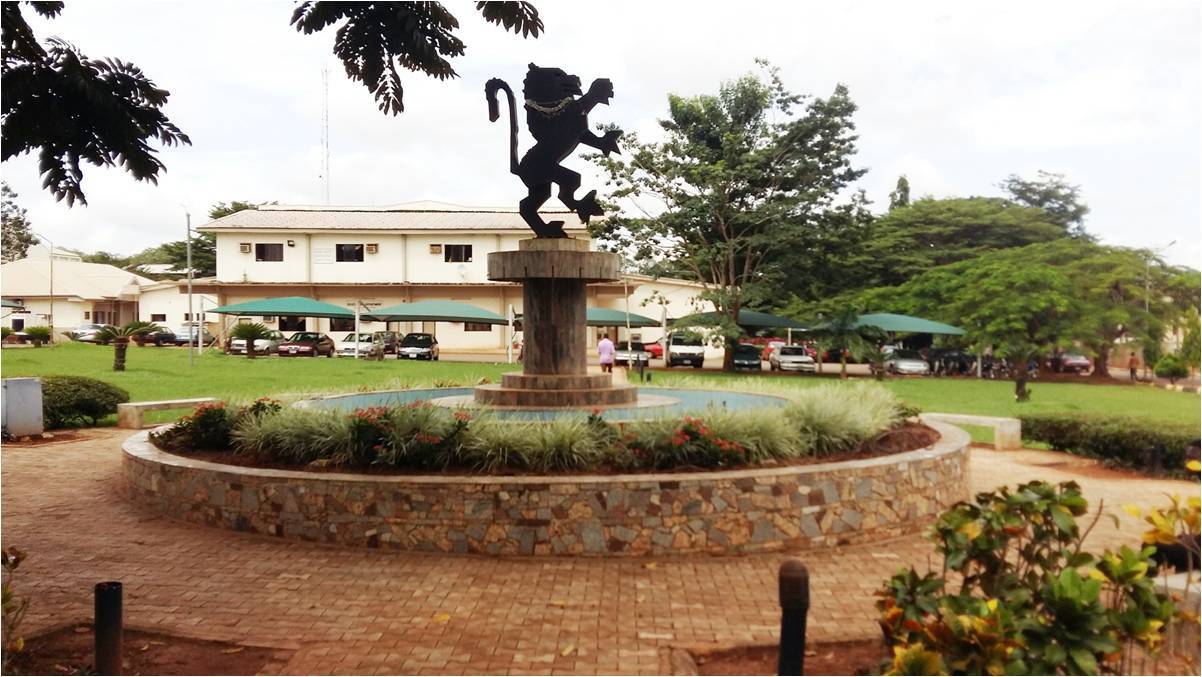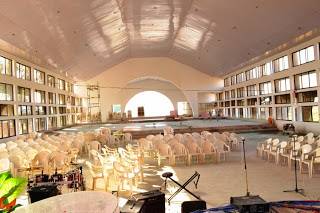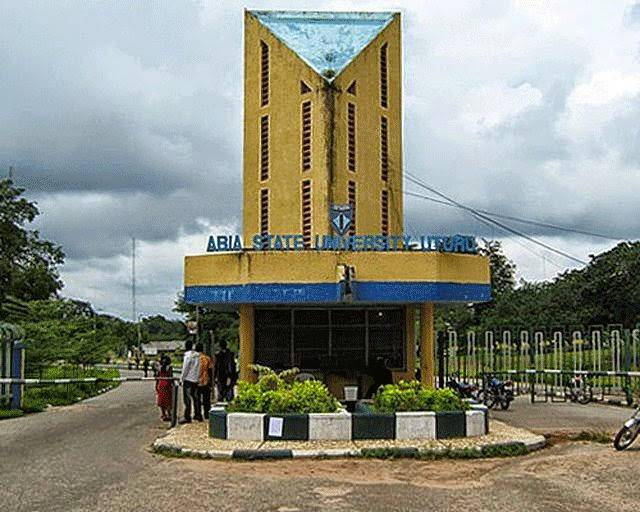University of Nigeria, Nsukka

About The University of Nigeria
The University of Nigeria fondly called ‘UNN’ was founded by the administration of the Premier of the Eastern Region, Nnamdi Azikiwe in 1955, five years before Nigeria’s Independence, and began academic activities on 7 October 1970 with an enrollment of 220 students and 13 members of staff. Established on the concept of service to the problems and needs of Nigerians, UNN has since grown from its humble backgrounds to become one of the top five elite Universities in the country.
The University of Nigeria, a citadel of higher learning is made up of three campuses located at strategic locations in Enugu State. They include; The main campus in Nsukka which hosts students, varieties of academic programmes and is home to ten (10) faculties as well as the Postgraduate (PG) school, Research Institutes and Centres; The Enugu campus also called ‘UNEC’ located in Enugu town which is composed of four (4) faculties, and finally; Ituku Ozalla campus which houses the University’s teaching hospital, the faculty of Medical Sciences and the College of Medicine.
UNN currently has 15 faculties and 102 academic departments offering 82 undergraduate programmes and 211 postgraduate programmes. These programmes/courses lead to officially recognized degrees such as Bachelor, Master, and Doctorate degrees in diverse fields of study and are also accredited by the National Universities Commission (NUC). Currently ranked as the 4th best University in the Country and 1,750 in the world by 4ic.org, UNN stands as the first fully-fledged, autonomous University in Nigeria and the first institution established by a Regional Government.
Faculties At The University of Nigeria
As stated earlier, the University has over 13 faculties including a College of Medicine. The faculties at the Institution include:
Faculty of Agriculture
Faculty of Arts
Faculty of Biological Sciences
Faculty of Business Administration
Faculty of Education
Faculty of Engineering
Faculty of Environmental Studies
Faculty of Law
Faculty of Pharmaceutical Sciences
Faculty of Social Sciences
Faculty of Physical Sciences
Faculty of Veterinary Medicine
Faculty of Vocational Technical Education.
Courses Offered At The University of Nigeria
As a renowned academic institution, UNN has a long list of departmental programmes offered in each faculty. Landmark achievements and recognition have also been attained by some of these departments, one of such been the recognition of the Department of Electronics Engineering as a Center of Excellence in Electronics by the Federal Government in 1982, and has consistently produced the Best Graduating Student in the University.
Do you wish to further your academic career at the institution? Or do you have a course in mind but don’t know what faculty it falls under? Here’s a list to help you. Find the departmental courses offered in each faculty below:
Faculty of Agriculture
Agricultural Economics
Agricultural Extension
Animal Science
Home Science, Nutrition, and Dietetics
Soil Science
Food Science Technology
Crop Science.
Faculty of Arts
Mass Communication
History and International Studies
Music
Archaeology and Tourism
English and Literary Studies
Fine and Applied Arts
Linguistics, Igbo, and other Nigerian Languages
Theatre and Film Studies
Foreign Languages and Literature.
Faculty of Education
Adult Education
Arts Education
Educational Foundation
Home Economics Education
Health and Physical Education
Library and Information Science
Science Education
Social Sciences Education
Vocational Teacher Education.
Faculty of Biological Sciences
Biochemistry
Microbiology
Plant Science and Biotechnology
Zoology and Environmental Biology
Faculty of Business Administration
Accountancy
Marketing
Banking and Finance
Management.
Faculty of Engineering, here we have the departments of:
Agric and Bio-resources Engineering
Civil Engineering
Electrical Engineering
Electronic Engineering
Mechanical Engineering
Metallurgical and Materials Engineering.
Faculty of Social Sciences
Public Administration and Local Government
Social Works
Economics
Political Science
Religion and Cultural Studies
Psychology
Sociology and Anthropology
Geography.
Faculty of Law
Property Law
International Law and Jurisprudence
Private Law and Public Law.
Faculty of Physical Sciences
Pure and Industrial Chemistry
Computer Science
Geology
Mathematics
Physics and Astronomy
Science Laboratory Technology
Statistics.
The University also has departmental programmes in the faculties of Medical Sciences, Pharmaceutical Sciences, Health Sciences and Technology, Dentistry, Basic Medical Sciences and Veterinary Medicine.
UNN Facilities
The University is a very large, situated in a large expanse of land that houses various academic, non-academic facilities. All the University’s campuses can conveniently boast of lecture halls, halls of residence, faculty buildings, administrative blocks, conference halls, and other amenities. UNN is also home to the following:
A Library: UNN has about three standard libraries, one in the main campus called Nnamdi Azikiwe Library, the Enugu Campus Main Library and the Medical Library located at the College of Medicine, Ituku-Ozalla.
An Administrative Support Unit: consists of an ICT unit, the University Press, the University Bookshop, Physical and Academic planning unit, a computing center, a medical center, a service commission, e.t.c.
The University has also provided quite a recreational centers and sporting facilities, built to encourage extracurricular activities in the institution.
UNN Admission Requirements
If you wish to study in UNN, you have to be conversant with the programmes offered in each faculty in order to choose correctly your preferred course. Some of the courses offered for undergraduate programmes have been provided above; take time to go through them before making a decision.
It’s also advisable that you frequent the institution, make inquiries or more conveniently, visit the school website for reliable information on admission process in the institution, and admission requirements for each faculty. We’ve taken time to list out general admission requirements for prospective undergraduates and postgraduates at the institution, find them below.
For Prospective Undergraduates:
As a prospective candidate seeking admission in the University of Nigeria, it’s advisable that you go through specific admission requirements for the courses offered in the institution on the JAMB website, or the UTME Brochure published every year. Asides this, here are some general requirements:
You are required to have at least 5 credit passes in your O’level result or its equivalent at no more than two sittings. The subjects passed should include English Language, Mathematics, and any other three, based on the subject combination for your desired course of study.
You must register for JAMB, sit for the examination, and attain the prescribed JAMB cut-off mark for your course. This would make you eligible to;
Sit for the Post-UTME examination organized by the institution. Bear in mind that you must attain the exact Post-UTME cut-off mark or preferably score higher so as to increase your chances of getting admitted.
If successful, your name will come out on the admission list released by UNN and you’ll be informed on subsequent steps to take which might most likely be an internal screening process (Post-UTME).
Please note that application forms for the 2017/2018 academic session are currently closed. Further information about admission in UNN and related news would be posted on the University’s website.
For Prospective Postgraduates
UNN has a PG school that has made provision for over 201 postgraduate programmes at PGD, Masters, and Ph.D. levels. The courses offered in these levels are relatively similar to those offered at the Undergraduate level.
The admission requirements for PG students at the institution isn’t so different from the general requirements in other universities. These requirements may include, obtaining 5 credit passes in SSCE/GCE or other equivalents, the subjects passed must include English, Mathematics, and three other relevant subjects; Having a Bachelor degree with a minimum of Second Class Lower Division from a University recognized by the Senate for prospective PGD and Masters students or ; Having a Masters degree with a weighted average score of 60% in both academic and research work for Ph.D. programmes.
Asides all these, you may be requested to write an entrance examination depending on your proposed programme. Other requirements may also include, NYSC Discharge Certificate/ Exemption letter, and also your academic transcript.
More details about the PG school, PG admission requirements, programmes available and lots more, can be found at the University website, under the admission link or more conveniently visit at spgs.unn.edu.ng. And the University's website can be found at unn.edu.ng
Things To Know About UNN
For travelers who intend to visit/prospective students of the institution, here are a few things to know about UNN.
Safety
The University is located in a secure place with seasoned security personnel.
What To Bring
Before dashing off to start your academic career at the University, or running off to visit fun spots, here are a few things to bring:
Educational materials
Academic documents
Cash
Personal effects, and
A valid means of identification
Things To Do
Bothered about what you can do while at the University? Here are some things you can do:
Partake in academic and social activities
Enroll for a full-time or part-time programme., or
Take a tour around the institution.
Notable Alumni
We can go on and on talking about alumni’s of the institution. UNN has remarkably produced an extensive list of prominent Nigerians holding it down in their various fields. From individuals in tech to politics, entertainment, writing, arts, poetry, and the list goes on and on… Here's a few of them:
Kalu Ikeagwu, Nigerian actor
Obi Emelonye
Emmanuel Iwuanyanwu
Flavour N’abania, Nigerian musical artist
Tony Nsofor, Nigerian artist
Chris Okotie, Nigerian pastor
Arunma Oteh, Vice President and Treasurer, World Bank Group
Obiwon, Nigerian musical artist
Olisa Agbakoba, Nigerian human rights activist
Patrick Utomi, Nigerian Professor
Chris Ngige, Current Federal Minister of Labour and Employment
Bennet Omalu, Nigerian-American Physician.
Best Features
Offering over 82 undergraduate and 211 postgraduate programmes, the University has carved a niche for itself and stands as one of the most prestigious higher institutions of learning in the country.
Writer’s Review
It has an enviable alumni list of prominent and reputable Nigerians that have made a mark in the Nation and contributed immensely in various sectors of the country. it's definitely one I’ll recommend.
Nice Things About Place
This campus is just one of four that form the University of Nigeria, others including the University of Nigeria Enugu Campus, University of Nigeria Teaching Hospital and University of Nigeria Aba Campus. A former campus was opened in 1973 in Calabar, which later became the full-fledged University of Calabar. Some of the faculties located in the Nsukka campus are the Faculties of Agriculture, Arts, Biological Sciences, Education, Engineering, Pharmaceutical Sciences, Physical Sciences, Social Sciences, and Veterinary Medicine.
Quote About Place
["Webometrics ranks UNN as best university in Nigeria, 14th in Africa-Daily Post. Feb 15, 2016","Ooni of Ife Sworn-in as The New University of Nigeria, Nsukka, Chancellor-The Pace News. Feb 20, 2016"]
Reason For Loving Place
Offering 82 undergraduate and 211 post-graduate programs, this is one of the most prestigious Universities in Nigeria. It is located on a 871 hectare expanse of land and houses 15 facilities and 102 academic departments.
Things To Do
["Enroll for part time or full time course(s)","Make use of the extensive library for research purposes","Partake in the various current academic and social events"]
Why Was It Built?
to produce highly skilled men and women that will fulfill the manpower needs of the newly independent Nigerian state
Ways Of Travel
By car and motorbike
Reason To Recommend Place
It has an enviable alumni list of prominent and notable individuals, such as Dora Akunyili, Ike Ekweremadu, Obiageli Ezekwesili, Peter Odili, Patrick Utomi and many more.
What To Bring
["Educational materials"]


